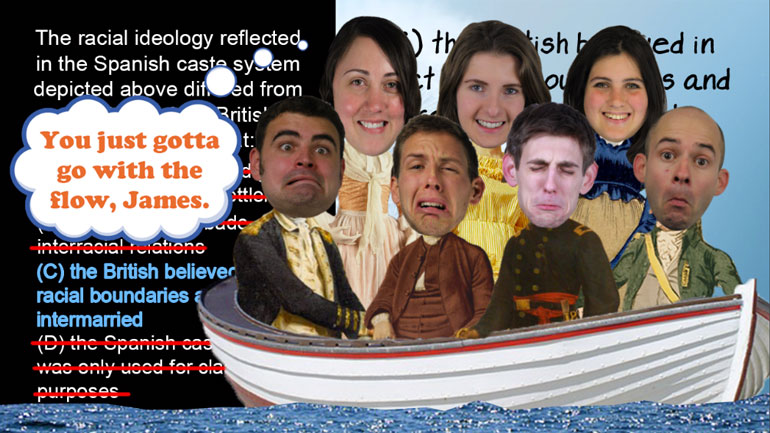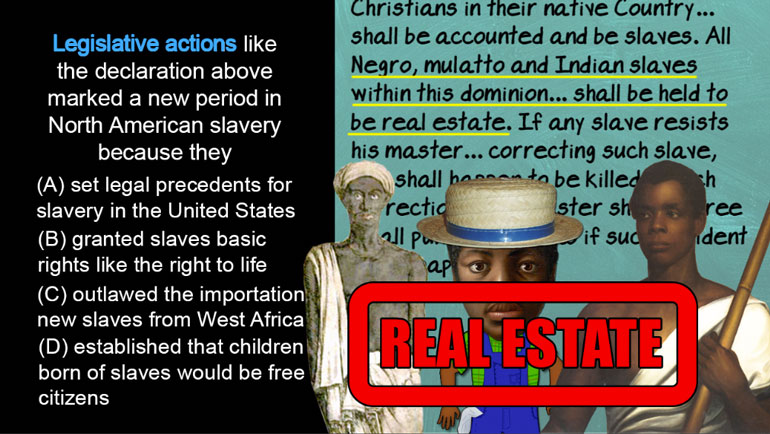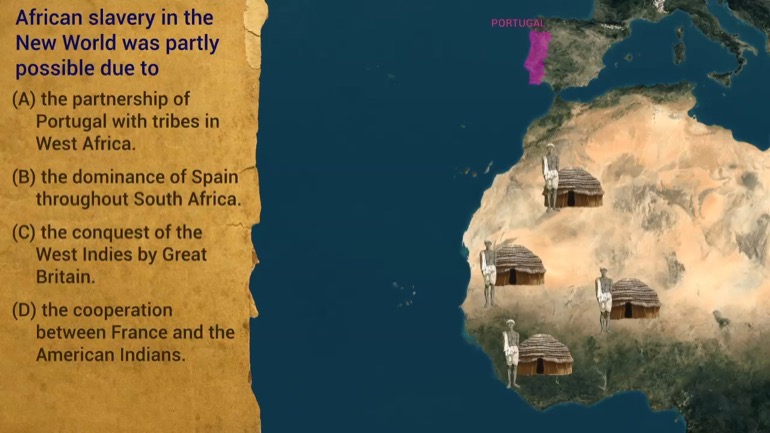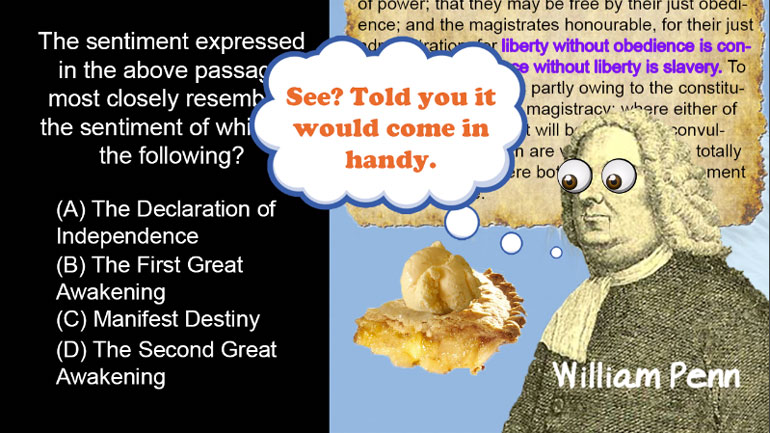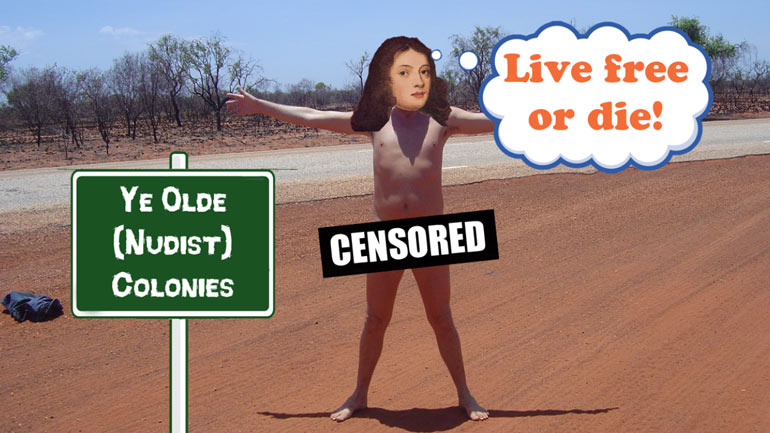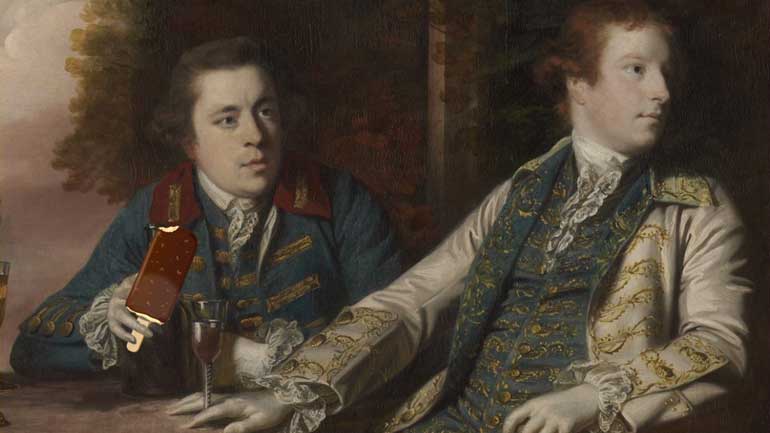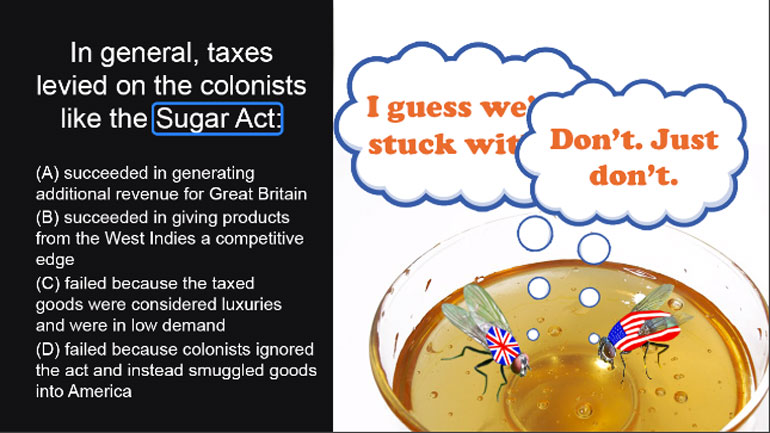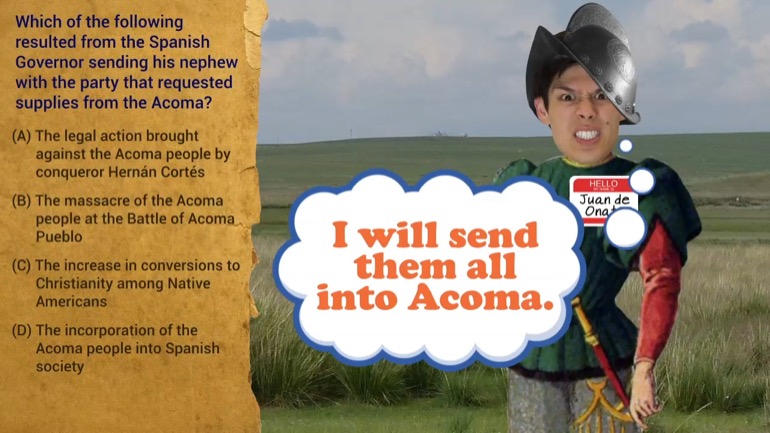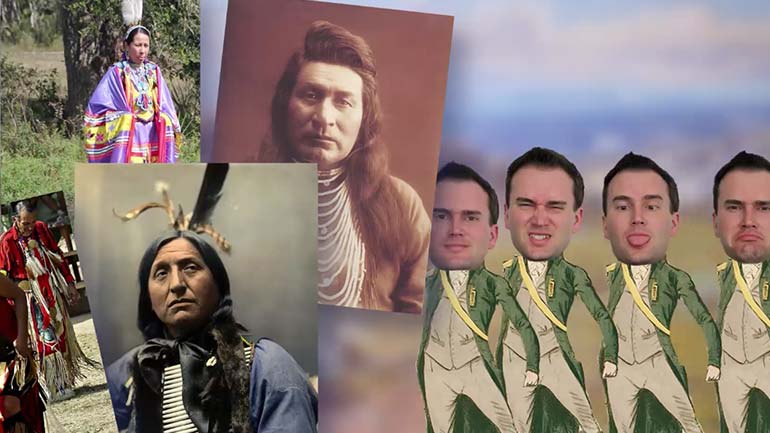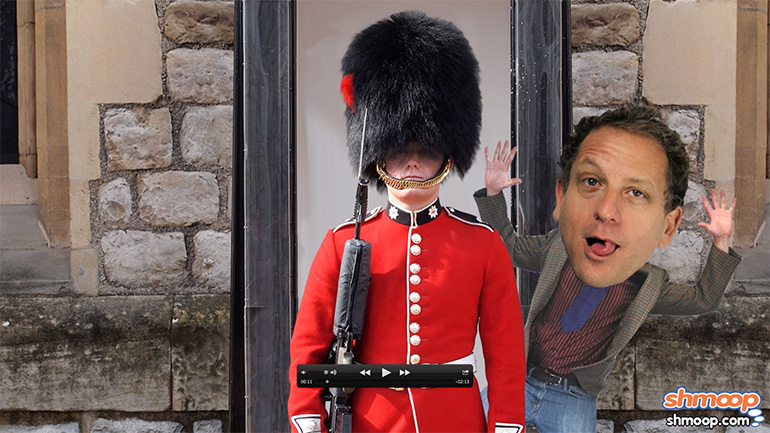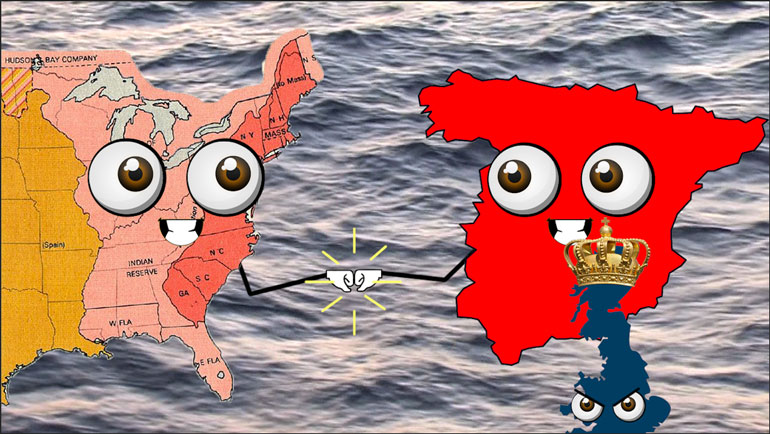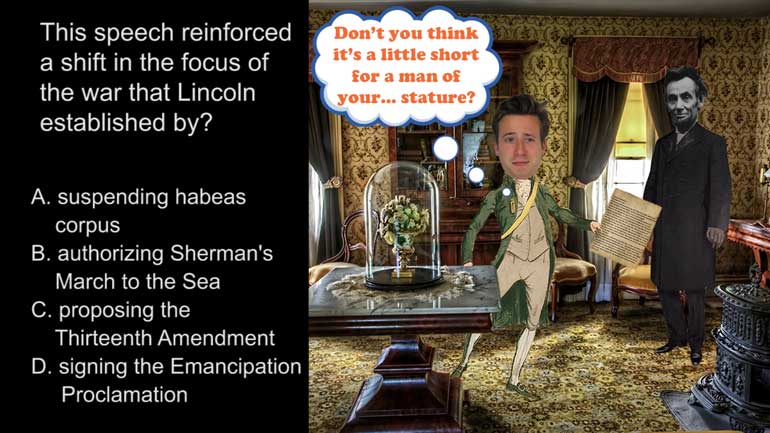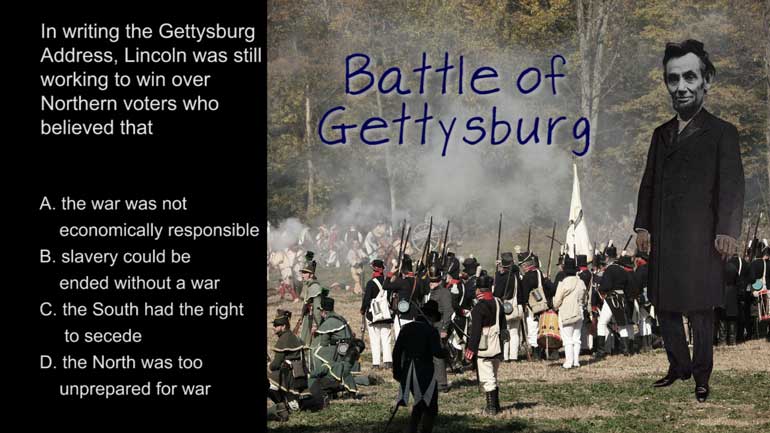ShmoopTube
Where Monty Python meets your 10th grade teacher.
Search Thousands of Shmoop Videos
Period 2: 1607–1754 Videos 18 videos
AP U.S. History 1.1 Period 2: 1607–1754. The racial ideology reflected in the Spanish caste system depicted above differed from the views of the...
AP U.S. History 1.2 Period 2: 1607–1754. Conflicts between Spanish colonizers and native populations, compared to conflicts between British colon...
U.S. AP U.S. History 1.3 Period 2: 1690-1754. Legislative actions like the declaration above marked a new period in North American slavery becau...
AP U.S. History 2.3 Period 2: 1690-1754 245 Views
Share It!
Description:
AP U.S. History 2.3 Period 2: 1690-1754. Which of the following characterizes the path of British colonial expansion in New England?
Transcript
- 00:00
[ musical flourish ]
- 00:03
And here's your Shmoop du jour, brought to you by New England,
- 00:07
old England with all the bugs worked out.
- 00:09
All right, which of the following characterizes the path of
- 00:12
British colonial expansion
Full Transcript
- 00:14
in New England?
- 00:15
And here are your potential answers.
- 00:16
[ mumbles ]
- 00:20
[ mumbling continues ]
- 00:22
Okay.
- 00:23
What exactly was the path of
- 00:25
British colonial expansion in New England?
- 00:28
Hmm.
- 00:29
Remember, these settlers were coming across the ocean
- 00:31
to start a new life.
- 00:32
It took a little while for them to be self-sufficient.
- 00:34
Sort of like how you might still need a little help from your parents
- 00:37
when you strike out into the world on your own.
- 00:39
So let's keep that in mind as we look at the answers. Yeah.
- 00:43
All right. Well did British colonial expansion A -
- 00:45
avoid existing Native American settlements?
- 00:48
Well, not really. Few settlers paid any
- 00:50
attention to where the Native Americans lived,
- 00:52
preferring to acquire whatever territory they wanted.
- 00:55
Even if other people already lived there.
- 00:57
So much for the Good Neighbor policy, right?
- 00:59
Was the path of expansion B - designed to allow
- 01:02
for large-scale plantations?
- 01:05
Well, sure, but that was
- 01:07
in the Southern colonies.
- 01:09
This question is asking about New England,
- 01:11
where farmers didn't rely as much on large-scale plantations
- 01:14
for their agricultural needs. So it ain't B.
- 01:17
Were the British focused on C -
- 01:19
pushing as far into the country's
- 01:22
interior as possible?
- 01:23
Well, think about the map of New England.
- 01:25
All those teeny-tiny states crammed together
- 01:28
like someone shoved them into a locker for looking at them funny.
- 01:30
So strike C off the list, too.
- 01:32
That must mean the British D -
- 01:34
developed along the areas most suitable
- 01:37
for trade and agriculture.
- 01:38
Remember what we said about these colonies
- 01:40
not being self-sufficient at first?
- 01:42
Well that means they needed to import goods
- 01:44
from the West Indies and Great Britain.
- 01:46
And the surest way to get those goods was
- 01:48
to settle along the shore.
- 01:50
So the correct answer is D.
- 01:51
With all that beachfront property, it's no wonder
- 01:53
the colonists were able to coast to success.
- 01:56
Ba da bum.
Related Videos
AP U.S. History Exam 2.45. The journey shown on the map was an example of...what?
AP U.S. History Exam 2.26. This speech reinforced a shift in the focus of the war that Lincoln established by...what?
What did the Spanish messengers bring with them to North America? Hint: you probably wouldn't be thrilled to get this for your next birthday.
AP U.S. History Diagnostic 24. How did the United States choose containment over the National Security Council Report in Latin America?
AP U.S. History Exam 2.25. In writing the Gettysburg Address, Lincoln was still working to win over Northern voters who believed that...what?
